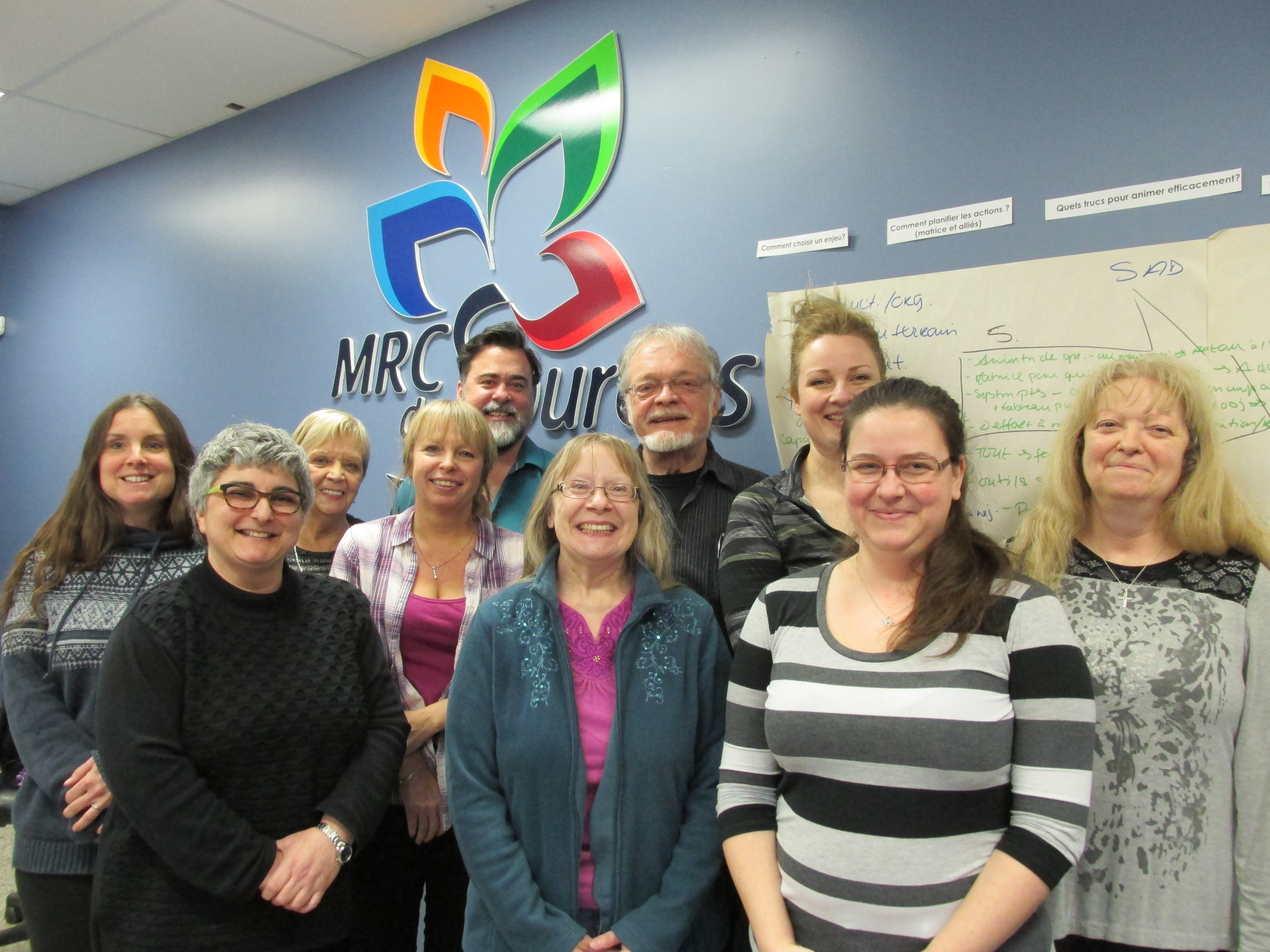From left to right. Back row: Nathalie Auger ; Micheline Hébert ; Gaétan Nadeau ; Michel Couillard ; Andréanne Ladouceur Front row: France Roussy ; Nathalie Durocher ; Maryse Lapalme ; Véronique Poirier ; Lise Charbonneau
Good project management practices have no boundaries, no age, and our friends at the Table Régionale de Concertation des Aînés de L'Estrie demonstrate it perfectly!
As a young Canadian company aware of our social responsibility, we have provided a series of free tools to help every organization, company or association that wants to improve its project management processes.
These tools include our:
The last one was used by the Table de Concertation des Aînés de L'Estrie (group that represent the diversity of seniors in their region) to carry out a workshop regarding its stakeholders and what strategies to adopt with each of them.
If you work for and NGO, and want to efficiently manage your community projects, here are 10 questions you should ask yourself in order to improve your workflows.
1. Does my project benefit the community?
It's crucial for your projects to match your firm's mission and strategy. Your project must further satisfy the needs of the community or group of people you're trying to help in a meaningful way.
If your organisation aims to help a certain community, your strategy should be aligned with their needs. However, if your project has no quantifiable benefits to the community then you should consider either taking on a different project or re-visiting your strategy.
2. Do I have the necessary tools to carry out my project?
Being able to deliver your project in a timely manner requires internal tools and processes adapted to your organization. For example, you should consider setting up a pre-mortem meeting before the start of the project, which will help you identify early on the reasons your project could fail. Then you should conduct a post mortem meeting, which is a classic project management tool that aims at helping you learn from what went well and what went wrong.
Moreover, you shouldn't forget to take into account the availability of all participants as it could hinder the progress of your project.
These suggestions will help you to avoid delays in project delivery and make your life easier as budding project manager.
3. Does my team have the necessary skills?
Ensuring your team members have the right level of skills to complete your project is essential to mitigate the risks associated to your project. This strategy might work for your ongoing projects but in the long run, to ensure the success of your future projects, it is important to develop your employees skills. For example, your company could set up training workshops every month.
Therefore, for NGOs, having an active management of skills is essential: "To implement projects successfully, it is necessary to combine both hard and soft skills” (Söderlund and Maylor, 2012)
